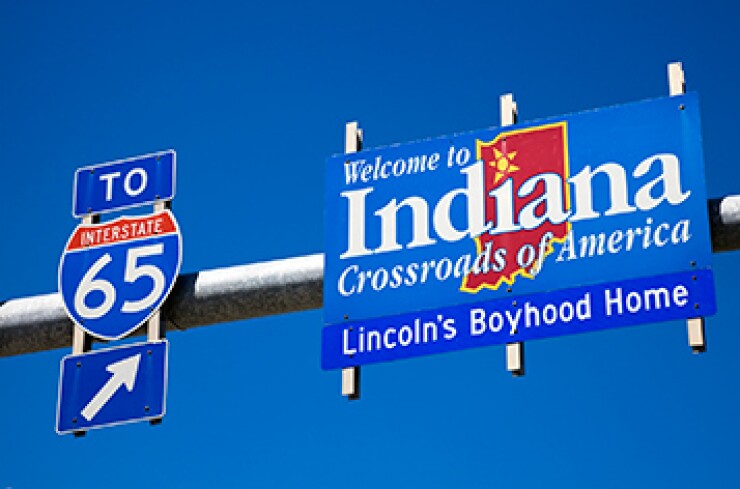CHICAGO – Indiana lawmakers will begin hashing out their differences on a new two-year state budget and transportation package in the coming days.
A conference committee of House and Senate members was named last week on the transportation package in HB1002 and committee members were expected to be appointed as soon as Monday for the budget laid out in HB1001.
The Senate last Thursday passed a $32.1 billion budget in a 39-9 vote that differs from the House version approved in late February in a 68-29 vote in some spending and tax issues. The Republican-controlled legislature is set to adjourn later this month.
“I believe we are well on our way to a budget that properly funds state services, while maintaining strong reserves in order to protect taxpayers,” State Senate Appropriations Committee Chairman Luke Kenley, R-Noblesville, said in a statement.
A notable difference between the two is the $1 per pack increase in the state’s tax on a pack of cigarettes which the House included but the Senate did not. The House version would use revenue from the cigarette tax hike to plug a $300 million left by its plan to shift gasoline sales tax revenue to road funding. The Senate version lacks the shift.
Freshman Gov. Eric Holcomb opposed the House’s cigarette tax hike, saying that the tax has “more to do with public health and that discussion….I want to focus the discussion on infrastructure and how we're going to pay for our roads and bridges without combining the two."
The Senate version lacks Holcomb’s proposal to use the state’s $500 million Next Generation Trust Fund to fund investments in entrepreneurship and to support early-stage and mid-size Indiana companies. The House agreed to use a portion. Senate leaders said the issue will remain on the table for discussion during the conference committee.
The trust fund, established with proceeds from the 2006 Indiana Toll Road lease, currently must be invested in products with extremely limited risk. Lawmakers must approve converting the trust to support entrepreneurship in the state.
The two plans also veer on the level of education funding allocated over the next two years, with the Senate package providing an additional $358 million over current levels and the House offering $273 million.

The transportation package cleared the Senate in a 34-13 vote last week after winning passage by the House in 61-36 vote taken in February. Both rely on a $15 increase in vehicle registration fees and 10 cent hike in gasoline taxes to fund more spending on transportation. The Senate version includes several additional tax sources not adopted in the House plan and it phases in the gasoline tax hike.
Both versions allow the governor to put tolls on interstate highways with federal approval. The plans anticipate allowing toll charges of five cents per mile for passenger vehicles and up to 15 cents per mile for commercial trucks.
When fully implemented, the higher fuel taxes and the interstate tolls would generate $1.2 billion per year of new money for transportation.
Tolls on I-65 and I-70 would bring in an additional $365 million per year, according to legislative sponsors.
Interstate tolls are a more sustainable revenue source than the state's fuel taxes, now at 28 cents per gallon for gasoline and 22 cents per gallon of diesel, Kenley said when the bill was reviewed in committee. "It may not be the solution for today, but for the long term, I don't think you're going to realistically be able to deal with this problem without taking that [tolling] path," Kenley said.
Holcomb earlier this year proposed $31.8 billion over the next biennium that begins July 1. The state closed out fiscal 2016 with a structural surplus of $50.6 million, $545 million in its rainy day fund, and a total of $2.24 billion in various state reserve accounts.
Revenue in the fiscal year that ended June 30 finished $111.3 million below a revised forecast and $78.5 million below revenue collected in fiscal 2015. Indiana holds triple-A ratings from the three largest rating agencies.





